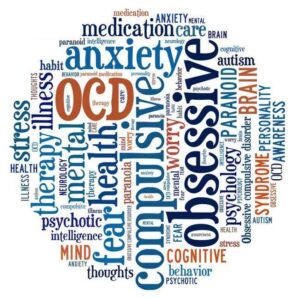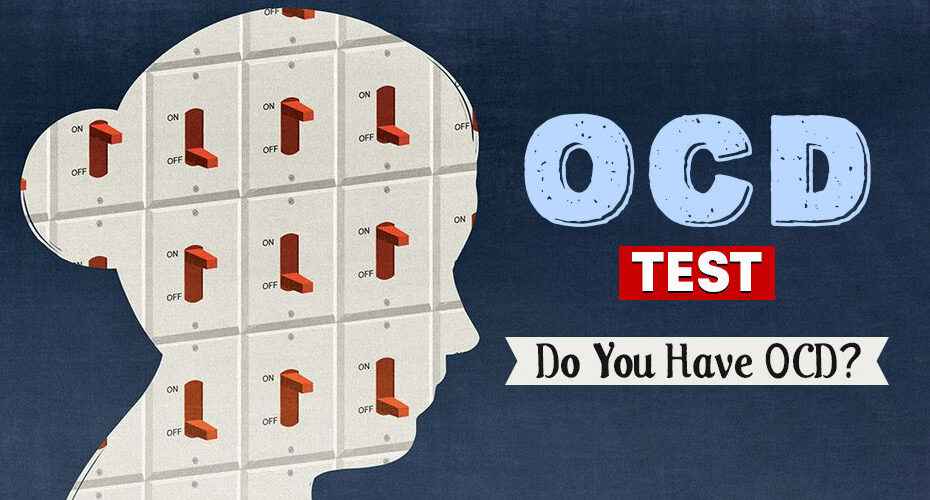Do you sometimes feel like your thoughts and behaviors are out of control? Do you feel like you need to do things a certain way, or else something bad will happen? If so, you may be experiencing symptoms of OCD. OCD is a mental health disorder that affects millions of people around the world. It can be difficult to know if you have OCD or not, which is why it’s important to take an OCD assessment. In this blog post, we will discuss everything you need to know about taking an OCD assessment. We will also provide links to some helpful resources.
Contents
What Is OCD Assessment?
 OCD Assessment is a process of observing and measuring an individual’s level of OCD severity. It is important to get an accurate diagnosis of OCD to create an effective treatment plan. Professionals or doctors will talk about your symptoms and determine if your thoughts or behavior will affect your functioning. And they will also determine if you have compulsive behavior and obsessions.
OCD Assessment is a process of observing and measuring an individual’s level of OCD severity. It is important to get an accurate diagnosis of OCD to create an effective treatment plan. Professionals or doctors will talk about your symptoms and determine if your thoughts or behavior will affect your functioning. And they will also determine if you have compulsive behavior and obsessions.
There are many different ways to assess OCD, but most commonly it is done through a clinical interview, self-report measures, or behavior observation. Let’s know about these methods in detail below.
Different Types Of OCD Assessments
There are different types of OCD assessment. The most common type of OCD assessment are:
Clinical interview: This is where a mental health professional will ask questions about your symptoms, thoughts, and behaviors. For example, they may ask you to describe your obsessions and compulsions in detail. They will also want to know how much time you spend on these activities, and how much they interfere with your life.
Self-report measures: This is another way to assess OCD. This is where you fill out a questionnaire about your symptoms. The questions will ask about the frequency and severity of your obsessions and compulsions. They may also ask about how much these activities interfere with your life.
Behavior observation: It is another type of assessment that can be used to diagnose OCD. This is where someone will observe your behavior and look for signs of OCD. For example, they may watch you wash your hands, or they will also want to know how these things are impacting your life.
It is important to get an accurate diagnosis of OCD so that you can get the most effective treatment. If you think you might have OCD, the first step is to see a mental health professional for an assessment. These are a few types of OCD assessment through which a therapist or doctor can diagnose.
What Is The Purpose Of An OCD Assessment?
The purpose of an OCD assessment is to determine the severity of an individual’s OCD symptoms. This information is important to create an effective treatment plan.
Without an accurate assessment, it would be difficult to properly treat someone with OCD. For instance, if someone is only mildly affected by OCD, they may not need medication or intensive therapy. On the other hand, someone with severe OCD may need a combination of medication, therapy, and other treatments.
OCD assessments are important tools to help mental health professionals create effective treatment plans for individuals with OCD. Without an accurate assessment, it would be difficult to properly treat someone with OCD.
If you think you or someone you know may have OCD, it is important to seek professional help. A mental health professional can administer an OCD assessment to determine the severity of symptoms and create an appropriate treatment plan.
Who Can Do An OCD Assessment?
Clinicians who are trained in assessing and diagnosing OCD can do an OCD assessment. This includes psychiatrists, psychologists, and therapists. A clinician will ask questions about your symptoms and how they affect your life. They will also want to know if you’ve been trying to cope with your OCD on your own or if you’ve sought professional help in the past.
What Happens During An OCD Assessment?

During an OCD assessment, the mental health professional will ask you questions about your symptoms and how they impact your life. They will also ask about your thoughts, feelings, and behaviors related to your obsessions and compulsions. The assessment may also include a physical examination. This is to rule out any medical conditions that could be causing your symptoms.
Screening and assessment: There are a few different ways that mental health professionals can assess OCD. The most common method is to ask questions about symptoms and perform a clinical interview.
The mental health professional will ask questions about the person’s thoughts, behaviors, and emotions. They will also ask about any family history of mental illness.
Psychological testing: Another method of assessing OCD is through Psychological testing can include paper-and-pencil tests, projective tests, and neuropsychological tests. They are often used to assess OCD. They involve showing the person images or words and having them respond to what they see.
For example, a mental health professional may show a person a picture of a dirty floor and ask them what they are thinking about. A person with OCD may say that they are thinking about how dirty the floor is and how they need to clean it.
Paper-and-pencil tests: These tests are often used to assess OCD. They involve answering questions about symptoms and how they affect the person’s life.
For example, a mental health professional may ask a person with OCD how many hours per day they spend thinking about their obsessions. The person may say that they spend several hours per day thinking about their obsessions.
Neuropsychological tests: These tests are used to assess how well the person’s brain is functioning. They often involve tasks that test memory, attention, and executive functioning.
For example, a mental health professional may ask a person with OCD to remember a list of words and then repeat the words back to them. The person may have difficulty remembering the words, which could be an indication of impaired executive functioning.
The mental health professional will use the information gathered during the assessment to diagnose you with OCD or another mental health condition. They will also develop a treatment plan to help you manage your symptoms.
If you think you may have OCD, talk to your doctor or mental health professional. They can help you get the treatment you need to manage your symptoms.
Conclusion
It may be concluded OCD assessment is conducted by a mental health professional to arrive at a diagnosis and recommend treatment. The assessment usually starts with questions about symptoms and how they affect the person’s life followed by other tests like paper-and-pencil tests, projective tests, or neuropsychological tests.
OCD is a serious mental illness that can cause significant distress and impairment in functioning. If you think you may have OCD, talk to your doctor or mental health professional. They can help you get the treatment you need to manage your symptoms.
Please note that this blog post is for informational purposes only and does not replace professional medical advice. If you think you may have OCD, please talk to your doctor or mental health.
For further information and suggestions, please contact Therapy Mantra. We have a team of expert therapists that can help you overcome this problem. Get in touch with us right away to learn more about our services. You may also make an online therapy session or download our free Android or iOS app.


